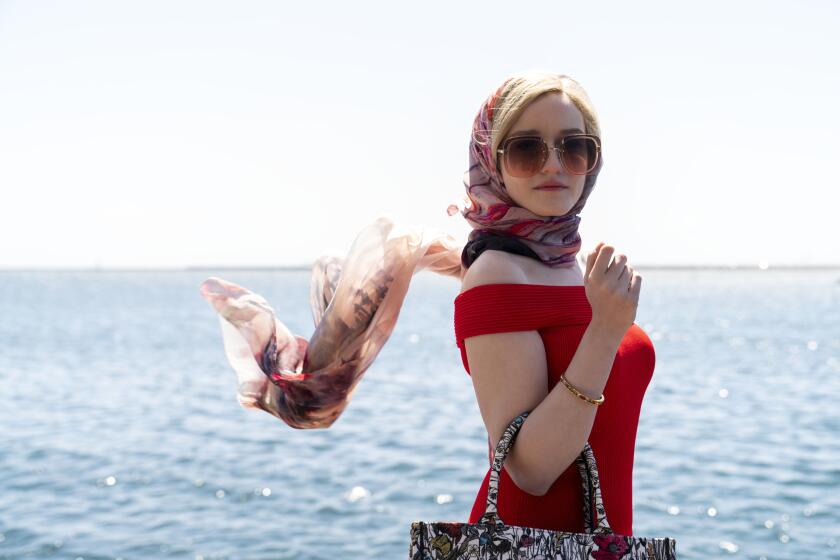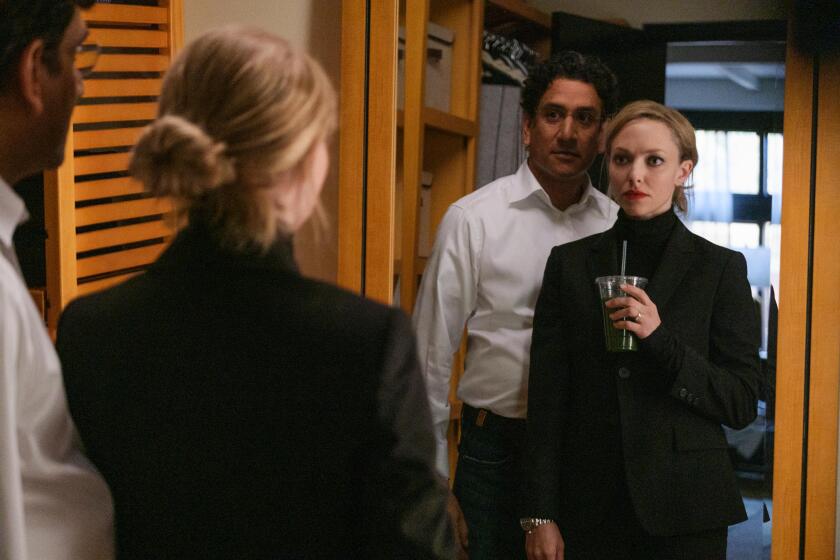How scammers and con artists became TV’s laziest way to hook viewers
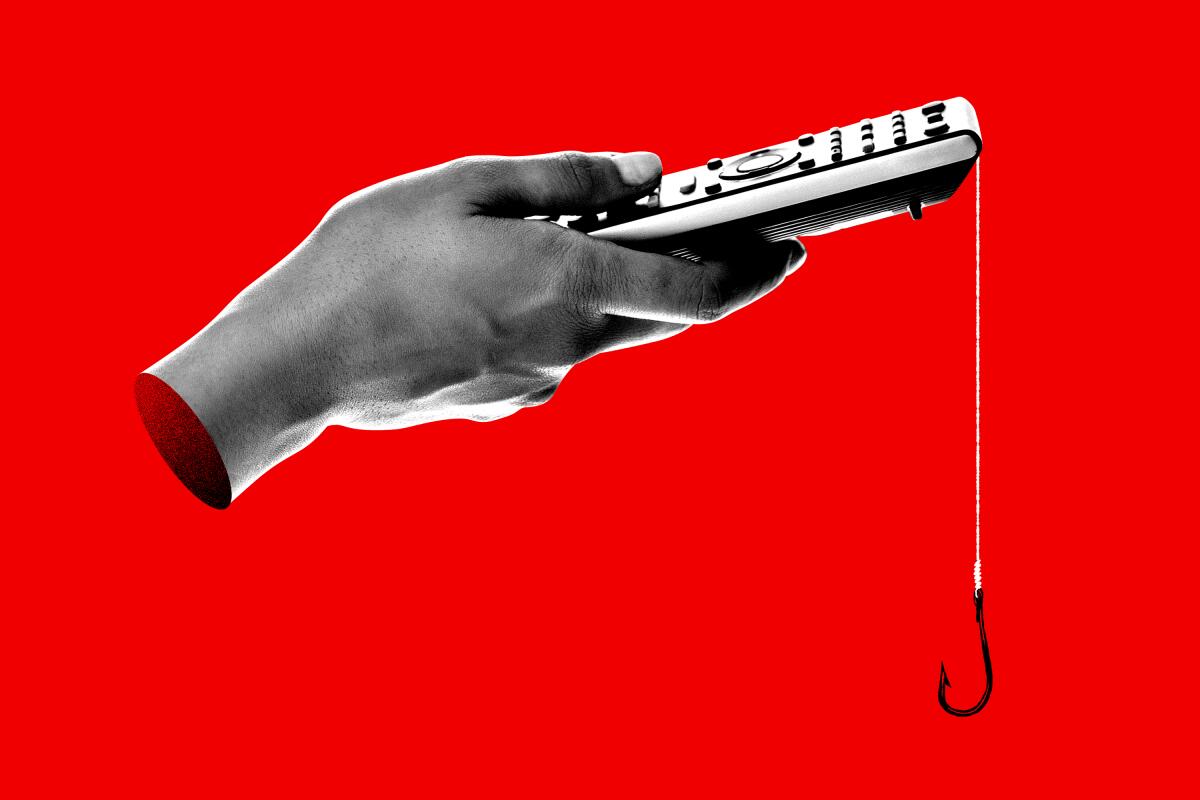
Once upon a time, if Hollywood told the story of your life, it was because you did something inspiring: ending British rule in India; writing one of the greatest nonfiction works of the 20th century; being, like, really good at math.
Now, all it takes is being a big-time scammer. Or, failing that, running your company into the ground in spectacular fashion while screwing over your investors and employees.
TV is awash in stories of people faking it until they (almost) make it. In the past two months alone, we’ve gotten “The Dropout,” a Hulu limited series about disgraced Theranos founder Elizabeth Holmes; “Super Pumped,” a Showtime drama about the rise of Uber and the fall of its former CEO, Travis Kalanick; “WeCrashed,” for Apple TV+, which tells the story of WeWork and its co-founder Adam Neumann; “Inventing Anna,” a Shonda Rhimes-produced Netflix series about Anna Sorokin, a.k.a. Anna Delvey, the con artist who posed as a German heiress and allegedly defrauded some of New York’s most powerful financial institutions; and “The Tinder Swindler,” a Netflix docuseries following an Israeli con man who fleeced women he met online by pretending to be a diamond mogul.
Julia Garner’s “socialite” scammer Anna Delvey steals the show in Shonda Rhimes’ otherwise uninspired Netflix series.
The trend has been building for years. (Remember the competing documentaries about the Fyre Festival back in 2019?) But it reached what will hopefully be its apex last week with the arrival of “Bad Vegan: Fame. Fraud. Fugitives.,” a four-episode Netflix docuseries about Sarma Melngailis, a Wharton graduate who started an upscale raw vegan restaurant and celebrity hot spot in Manhattan but ultimately went to jail for stealing from her employees and defrauding investors. Dubbed “the vegan Bernie Madoff” by the tabloid press, Melngailis claimed she was in a coercive relationship with her husband, a serial con artist named Anthony Strangis, who said he was a black ops agent and pressured her to give him millions of dollars that he blew on gambling while promising to make her beloved dog live forever.
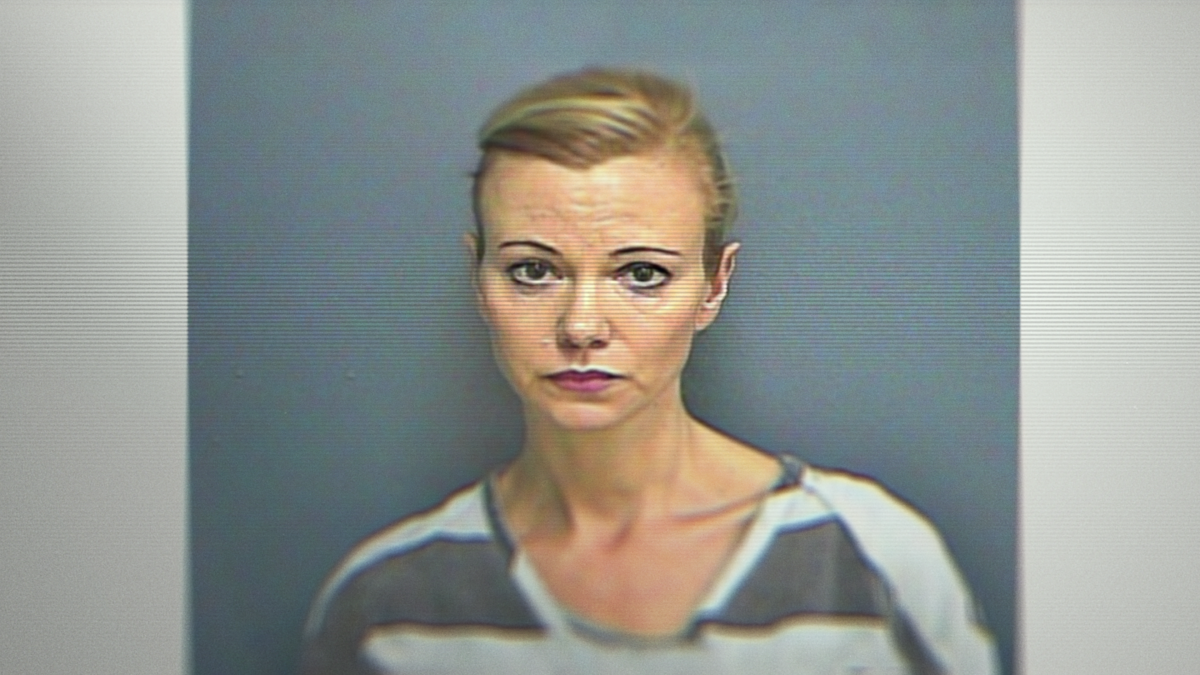
As of Monday afternoon, the series sits at No. 3 in the Netflix top 10, one slot ahead of “Inventing Anna.” (And two behind “Is It Cake?,” a new reality show about a very different kind of deception: cake made to look like other things.) There’s an obvious, undeniable draw to stories about such bold deception and chicanery; it’s a bonus when they involve gullible celebrities, a bit of wellness woo-woo and a stunning blond woman, like “Bad Vegan” does. Stories about individual scammers are a lot easier to digest, and to tell, than examinations of broader, systemic injustice. The downfall of people like Sorokin, Holmes or Neumann also allows us to believe that there is some accountability in late-stage capitalism (never mind that Neumann still has an estimated worth of a billion or so dollars, thanks to a generous exit package, and is back in the real estate game).
The problem is that Hollywood has turned scam stories into another form of empty IP — fodder to help feed its seemingly insatiable demand for content. Ironically, the lust for scammer stories has fueled a kind of pyramid scheme of its own, one in which streaming services gobble up long-form articles and podcasts and turn them into documentaries and glossy limited series in hopes of attracting new subscribers, winning some awards and starting the process all over again. It’s probably no surprise that Netflix already has a scripted version of “The Tinder Swindler” in the works.
From studying depositions and speaking to farm animals to perfecting the position of her tongue, Seyfried explains how she nailed Holmes’ baritone.
Occasionally, the formula is successful. “The Dropout” is hardly the first crack at the Theranos saga — we’ve already gotten John Carreyrou’s bestselling book, a popular ABC News podcast and an Alex Gibney documentary, and we will supposedly get a movie starring Jennifer Lawrence someday — but it is nevertheless quite gripping, managing to humanize Holmes (played with wild-eyed commitment by Amanda Seyfried) without letting her off the hook for recklessly endangering people’s lives and trading on the understandable desire to see a young woman succeed in tech.
But increasingly, these scammer shows are useless but expensive clutter, like so many unsold LuLaRoe leggings stuffed into boxes in a suburban garage. Too many fail to answer the essential question: Why spend four, six, even 10 hours watching the story on TV when you could just read the article on which it’s based in 30 minutes?
Despite its unwieldy length, for instance, “Inventing Anna” evinces little interest in Delvey or what makes her tick, spending much of its running time focused on Vivian Kent (Anna Chlumsky), the journalist investigating the story. (She is based on Jessica Pressler, who wrote a very enjoyable cover story about Delvey for New York magazine.) It plays like an extended, high-camp, ripped-from-the-headlines episode of “Law & Order,” with Chlumsky playing the role of detective.
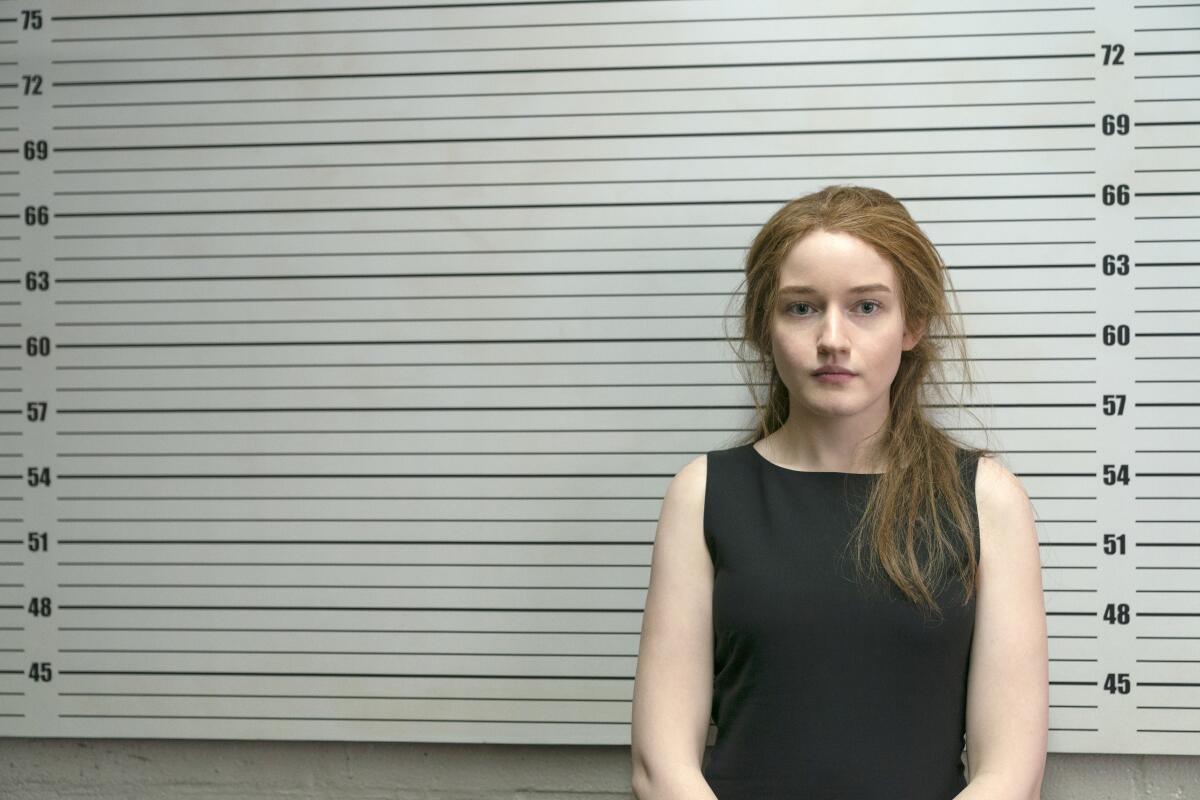
If you watch many of these shows in quick succession, as I did, you will begin to connect the players in an extended scam multiverse, noting that Delvey crashes on a couch belonging to Billy McFarland, the guy behind the disastrous Fyre Festival, and hangs with “Pharma Bro” Martin Shkreli. You will notice the same character actors popping up in supporting roles. (Hello, Anthony Edwards and Kate Burton!) And if you’re up to date on your celebrity gossip, you may even start to connect the actors in these shows to real-world scandals — like “The Dropout” star William H. Macy, whose wife, Felicity Huffman, spent 11 days in jail for her involvement in the college admissions scandal that was made into — what else? — a Netflix docuseries. Or Anne Hathaway, who plays Neumann’s wife, Rebekah, in “WeCrashed” and whose ex-boyfriend, Raffaello Follieri, went to jail for bilking investors by posing as the chief financial officer of the Vatican.
“Bad Vegan” is initially promising, if only because the details of the saga will leave you asking, “WTF?” At the height its popularity, Alec Baldwin was a regular at Melngailis’ restaurant, Pure Food and Wine, and sometimes tweeted about going there just to “stare” at her. (“He had a bit of a crush on Sarma,” says journalist Allen Salkin, who has written about the case for Vanity Fair.) Through the actor’s Twitter feed, Melngailis met Strangis and started a virtual flirtation, which eventually led to an in-person meeting and marriage. (Baldwin ultimately met his wife, Hilaria, who perpetrated something of a hoax by allowing people to believe she was Spanish, at Pure Food and Wine.)
From Netflix’s new ‘Unsolved Mysteries’ to ‘A Wilderness of Error,’ true-crime TV is rife with re-creations. But the trope raises ethical issues.
At four hours, though, the series is far too long for a story that goes to great — if ultimately unimpressive — lengths to justify its existence in visual form. To flesh out the series, director Chris Smith uses stylized reenactments of people with obscured faces, endless drone footage of the Manhattan skyline, shots of Melngailis walking her (still-living) dog through the city streets and grainy screenshots of text messages. . All this for a case that can be summarized in a single sentence: Seemingly smart young woman gets in over her head financially, falls for the wrong guy online, gives him all her money, goes on the run and gets arrested at a hotel near Dollywood.
The series offers little psychological insight into Melngailis, who remains a cipher by its conclusion. Indeed, Smith may specialize in scams, hoaxes and fiascoes (he made “Fyre,” “Tiger King” and “Operation Varsity Blues,” about the college admissions scandal), but he seems more interested in the how of these situations than the why. Smith clearly wants us to have sympathy for Melngailis, for instance, who implies in the series, but does not explicitly state, that she was sexually coerced by Strangis. But he doesn’t bother corroborating these allegations or considering what led Melngailis into a relationship with someone who was a walking red flag.
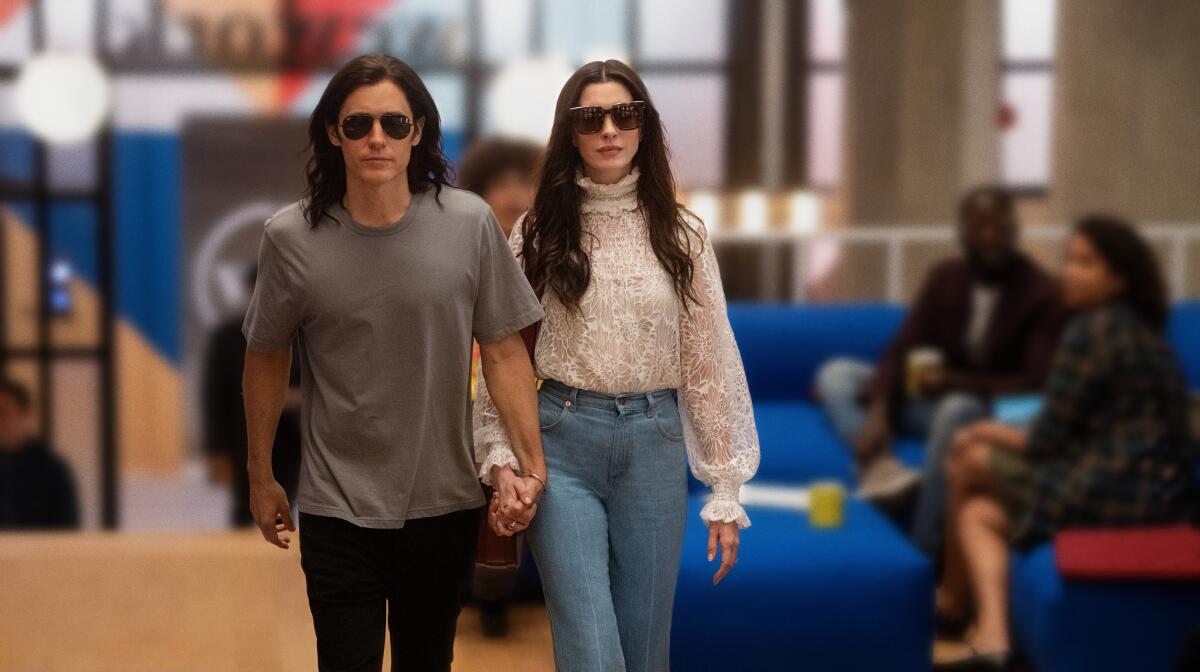
“Bad Vegan” offers some hasty comparisons to Patty Hearst and criticizes the media for weaponizing Melngailis’ plant-based lifestyle against her — by, for instance, running with the deliciously ironic but inaccurate claim that she was arrested because she charged a Domino’s pizza to her credit card. But it doesn’t offer much substance: to invoke a food metaphor, it’s mostly filler, a veritable buffet of pink slime.
Still, I’m guessing an announcement about a scripted version of “Bad Vegan” is right around the corner. Pure Food and Wine may be shuttered, but something needs to feed the streaming beast.
More to Read
The complete guide to home viewing
Get Screen Gab for everything about the TV shows and streaming movies everyone’s talking about.
You may occasionally receive promotional content from the Los Angeles Times.
